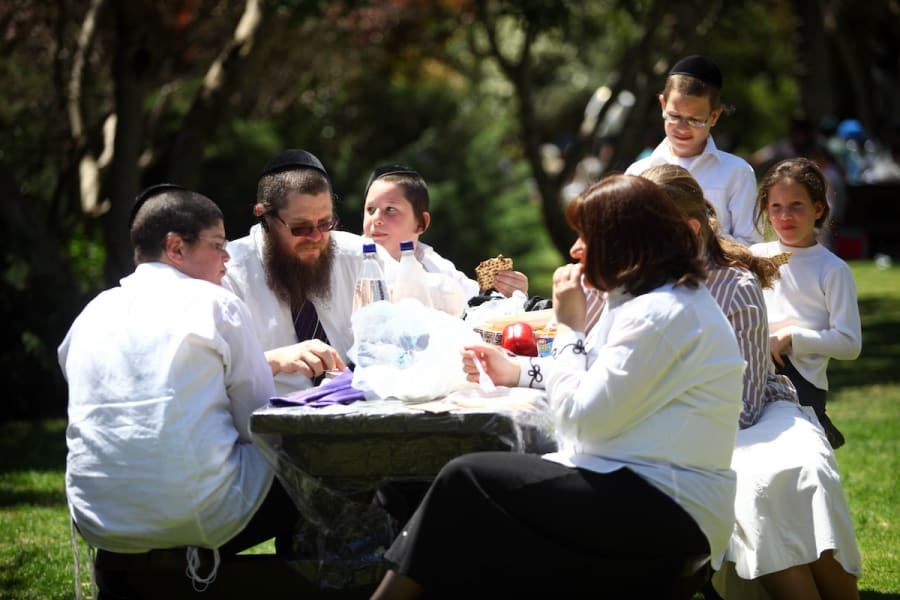New study examines factors determining marriage and family size in Israel’s complex society

A new study from the Taub Center for Social Studies Research in Jerusalem examines the factors that determine marriage and family size in Israel’s complex and diverse society.
Israel stands out internationally by being a developed high-income OECD society with high fertility rates similar to those in neighboring developing societies in the Middle East.
While marriage rates in Israel have declined to Western levels, the society is characterized by larger and younger families, attributed to the country's elevated fertility rate. Particularly, religious and ultra-Orthodox Israeli households tend to have a higher average number of children compared to secular Israelis. These factors are expected to affect Israel’s future economy and demographic profile.
Social and spatial networks affect marriage
Professor Avi Weiss, the president of the Taub Center for Social Studies Research, conducted the new study in cooperation with his colleagues Prof. Gil Epstein and Michael Debowy. The study focused on two social factors that affect marriage and childbearing; cultural location and physical location.
The study revealed that an Israeli was more likely to get married if he or she was surrounded by a large percentage of married couples in their respective neighborhood or socio-cultural networks. For instance, people who live in Israel’s largely secular single capital Tel Aviv are less likely to be married than those living in the far more religious and conservative capital of Jerusalem.
The social-cultural network determines childbearing
The study found that childbearing was mostly decided by social-cultural networks. While Israelis from all segments tend to have more children than average Europeans or Americans, ultra-Orthodox Israelis and Arab Muslim Israelis have, on average, even larger families because of expectations and customs in their respective cultural-religious networks. Interestingly, the study discovered that Arab Israelis were more likely to embrace a lifestyle similar to their neighbors than Jewish Israelis.
Looking ahead, Weiss assessed that “when predicting the needs of families in the future, local authorities need to consider both the predicted weights of different cultural groups in the population as well as their mutual influences on one another in the local space."
"Taking these data into account," he added, "is vital to improve demographic forecasts, urban planning, and the approval of construction and housing plans, as well as the provision of public services such as education, health, and recreational spaces.”
Unlike most high-income nations where an aging population is a major socio-economic challenge, Israel’s main challenge is to effectively integrate its comparatively young and diverse population into the modern Israeli economy. One particular challenge is to improve the integration of Arab Israelis and the rapidly growing ultra-Orthodox Jewish sector in terms of education and employment.
The Israeli military has long been a powerful engine that integrates and unites individuals from Israel’s diverse society. However, most Arab Israelis and ultra-Orthodox Israelis currently do not serve in the military, which makes their social integration more difficult.
While individual ultra-Orthodox Israelis have articulated interest in joining the IDF, much of the ultra-Orthodox religious and political leadership remain firmly opposed to letting young ultra-Orthodox Israelis join the military.

The All Israel News Staff is a team of journalists in Israel.













